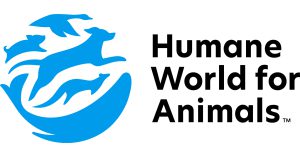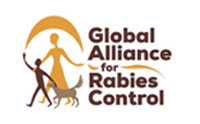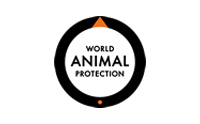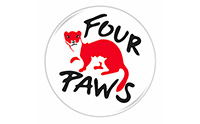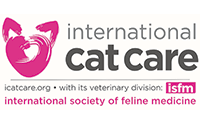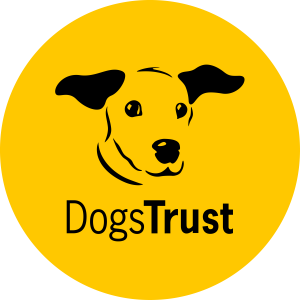
 8 April 2025
8 April 2025
We’re pleased to share our recent open letter to Members of the European Parliament expressing support for proposed EU legislation on dog and cat welfare and traceability.
The legislation aims to establish consistent standards across Europe for companion animal care, while addressing issues like illegal trade and promoting responsible ownership.
This aligns with our coalition’s focus on improving the welfare of free-roaming dogs and cats globally.
If you’re interested in learning more about how this legislation could benefit animals, pet owners and communities throughout Europe, we’ve outlined the key points in our letter below.
04 April 2025
European Parliament
Rue Wiertz 60, 1047
Brussels
Subject: ICAM’s Support for Proposed EU Legislation on Dog and Cat Welfare and Traceability
Dear MEP,
On behalf of the International Companion Animal Management Coalition (ICAM), we warmly welcome the European Commission’s recent legislative proposal, published on 7 December 2023, aimed at enhancing the welfare and traceability of owned dogs and cats across the European Union. It marks an important and timely step forward, addressing challenges with inconsistent standards, illegal trade, and ensuring Europe maintains its global leadership in animal welfare.
Europe is widely recognised as setting a high global standard in humane companion animal management, serving as an influential benchmark internationally. At this pivotal moment, sustaining and strengthening Europe’s standards on companion animal welfare is not only beneficial domestically – protecting citizens, consumers, and communities – but also essential to safeguarding hard-won progress, avoiding any regression, and reinforcing Europe’s international reputation for leadership and effective governance.
Several aspects of this proposal stand out for their significant and tangible benefits for European citizens, communities, and economies:
- Higher Quality Standards for Shelters:
Establishing basic, EU-wide standards for shelters and requiring registration with authorities will significantly improve the quality of care provided to animals. Importantly, better-run shelters reduce public expenditure by providing humane alternatives to animal abandonment, decreasing the need for costly state interventions. Transparent regulation and oversight will also enhance accountability, reinforcing citizens’ trust in European law and institutions.
- Promoting Responsible Ownership:
As most stray animals originally have homes, educating breeders, sellers, and shelters to inform new pet owners about their responsibilities will encourage responsible ownership. This directly contributes to fewer abandoned pets, significantly reducing costs related to stray population management, veterinary care, and public safety measures. By requiring all breeders and sellers to meet responsible ownership standards, we create fairer competition—levelling the playing field so ethical breeders and traders, who already invest in high welfare standards, are properly rewarded.
- The Benefits of Microchipping and Traceability:
Introducing mandatory microchipping at the source (breeders and sellers) is an efficient approach to traceability. UK experience shows that effective microchipping systems can quickly reunite pets with their owners—in fact, 43% of stray dogs were returned to owners, with 22% reunited directly without costly kennelling. Additionally, introducing a robust EU-wide identification and registration system would significantly disrupt illegal trafficking networks and organised crime groups involved in the pet trade, offering greater protection to both citizens and legitimate businesses. Traceability also supports rapid detection and response to zoonotic diseases (such as rabies), safeguarding public health and enhancing biosecurity across Europe.
- Consumer Protection through Uniform Welfare Standards:
Clear, consistent welfare standards and better regulation of online pet sales will significantly strengthen consumer protection. The EU market has increasingly suffered from low-quality puppies and kittens bred unethically within or imported from outside Europe (Four Paws, 2024). These animals often have serious health and behavioural problems, causing distress and financial burdens for pet owners and communities. By addressing this through uniform standards, we ensure fairer competition and better consumer outcomes, as well as a more integrated internal market for companion animals.
- Animal Health and Behavioural Standards:
Animals bred in poor conditions frequently develop health and behavioural issues, significantly increasing their likelihood of abandonment/ relinquishment. Setting clear health and behavioural standards prevents these issues from arising in the first place, substantially reducing public spending on sheltering, veterinary interventions, and law enforcement. It also provides clarity and confidence for citizens purchasing pets, further securing a fair and transparent marketplace.
- Recognition of Animals’ Intrinsic Value:
If adopted, the proposed legislation would establish uniform EU standards for breeding, housing, and care of dogs and cats. By clearly defining minimum welfare requirements for breeders, shelters, and sellers, the legislation would ensure companion animals across Europe benefit from appropriate living conditions, proper nutrition, necessary veterinary care, and humane treatment throughout their lives. This represents a meaningful step forward in protecting the welfare of dogs and cats EU-wide, reflecting Europe’s deeply held values and its commitment to animal welfare and humane treatment.
In summary, this legislation recognises the intrinsic value of companion animals and our moral responsibility to ensure their humane treatment and care. Adopting this proposal will reinforce Europe’s reputation as a global leader in humane and sustainable animal management, while offering significant economic, security, public health, and consumer benefits to all member states. We warmly encourage your support for this legislation, confident that it represents an effective and forward-looking investment in Europe’s future.
With sincere thanks and warm regards,
Dr Elly Hiby
Director, ICAM Coalition

